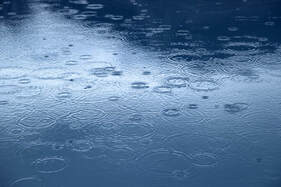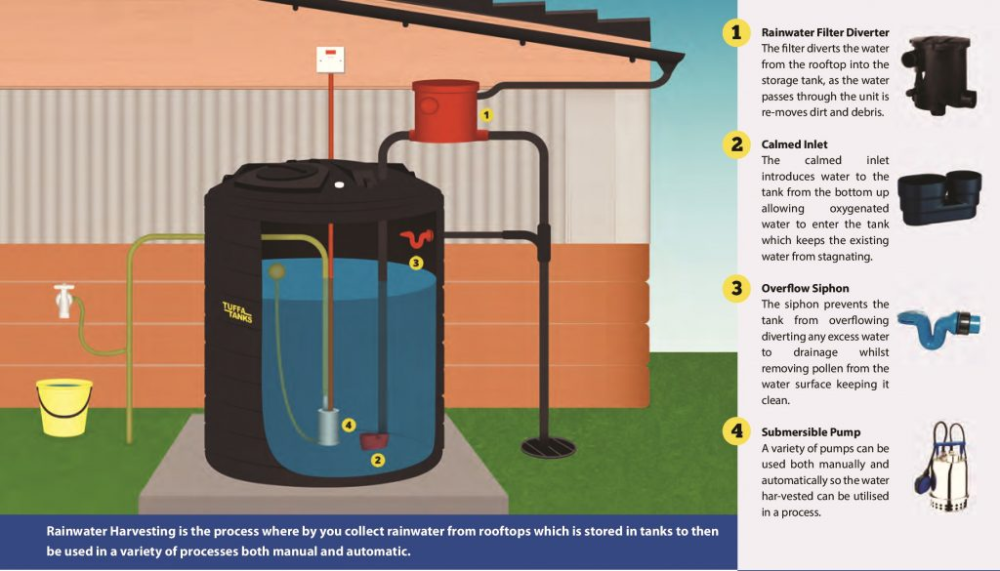 Many individuals in this country use city water or well water as their water source. For those who are looking to go greener, and save green, you can choose to harvest rainwater as your water source. Those who choose to harvest rainwater to use for ingesting and cleaning have their reasons. The majority harvest rainwater for environmental reasons. When one uses a stream or lake as a water source, you are tapping into the home of many species of wildlife. It would be like uninvited guests breaking into your home and stealing everything that makes it a home. It's like that for wildlife. Those who harvest rainwater know this and want to preserve the habitat for the species of animals that live in that area. You may be thinking: "Not much rain falls from the sky. How can I use rainwater as a water source for my family of six?" Let's talk numbers, shall we? According to the USGS, one inch of rain falling over one acre of land is equivalent to over 27,000 gallons of water (The average household goes through nearly 100,000 gallons of water annually). If you want to talk about the weight of one inch of rain over one acre of land, we are talking about 113 tons of usable water! "Okay, well I live in a part of the country where it snows a lot. Am I able to harvest snow?" Yes! One inch of snow falling on one acre of land is the equivalent of 2,715 gallons of water. If wet snow is falling outside your window, you are looking at 5,400 gallons of usable water for every inch that falls from the sky. How can I catch rainwater and harvest it for use? Well, the most popular way families harvest rainwater is through a system of gutters and downspouts. The downspouts and gutters collect the water, and the rainwater travels down to a compartment called a cistern. The cistern acts as a way to house and decontaminate the rainwater so it is safe for human consumption. In areas of the country that are prone to harsh winters, it is recommended that cisterns be installed underground.
While you can install a rainwater harvesting system yourself, it is recommended that you work with a specialist in order to avoid mishaps during construction of the system. Also, you will want to have an expert make sure that the water is safe to consume. Is the harvesting system complex? Yes. However, when you think about all the pros to harvesting rainwater (mentioned above), the pros outweigh the cons. In my opinion, I think every house should harvest rainwater. #rain #rainwater #harvesting #minimalist #tinyhomeliving #offgrid #water #watersource #lifestyleblogger #lifestyleblog #travel #happiness #success #nature #goals
0 Comments
Leave a Reply. |
ArchivesCategories |
©2017-2024



 RSS Feed
RSS Feed